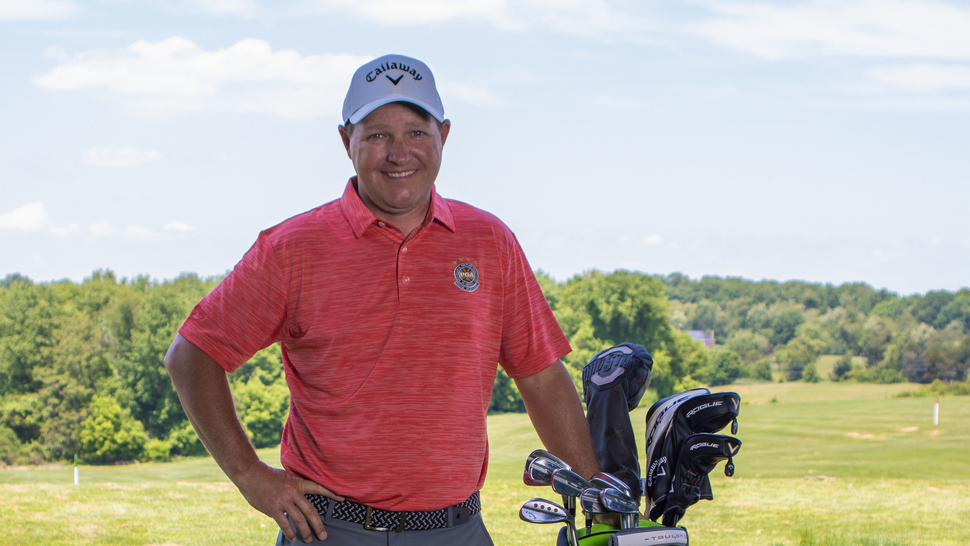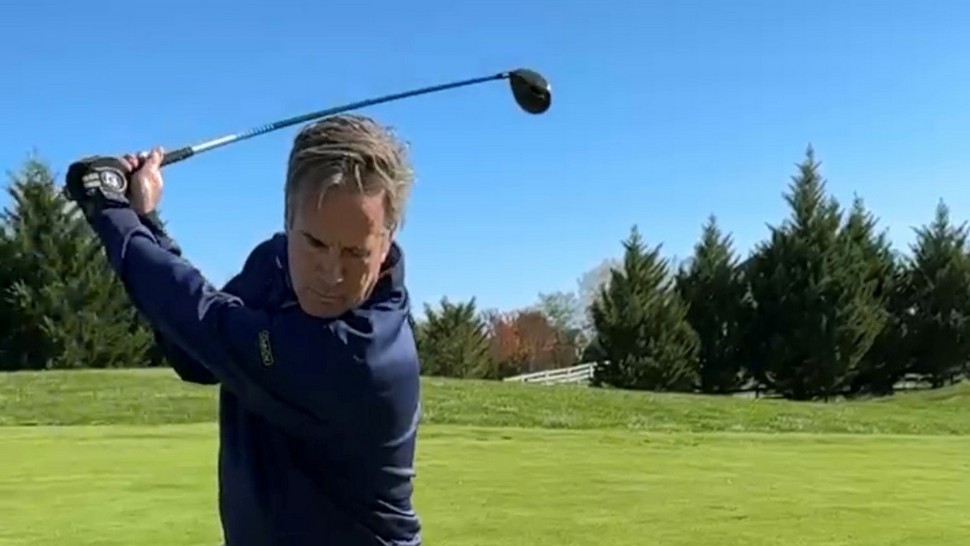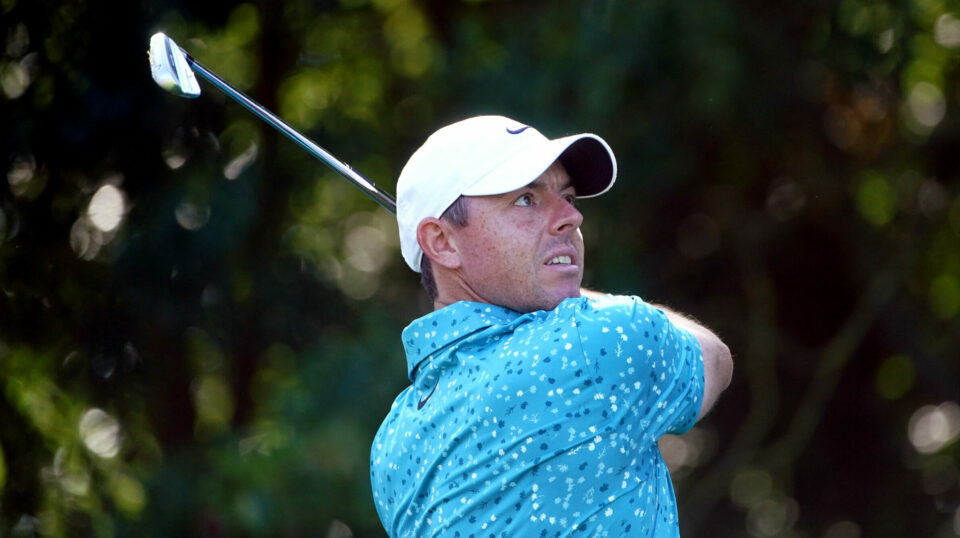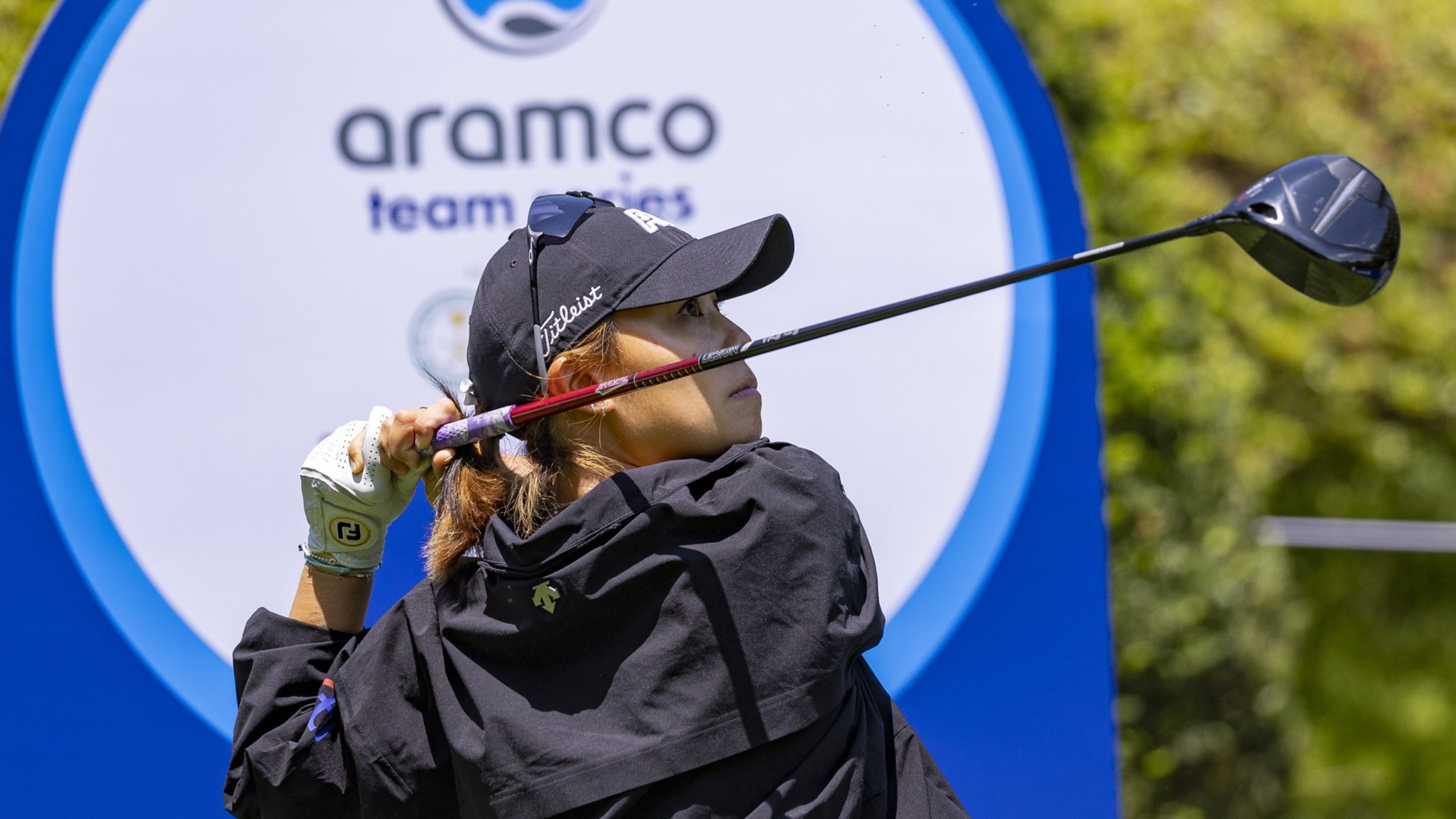Part 1
Trust is a central point in emphasis in elevating performance with students. What's your approach in building such trust -- whether with elite players or those at the novice level?
DICKSON: I believe the player needs to feel comfortable on providing feedback with their game and swing. I am always open to what the player thinks or feels in their swing. Many coaches are my way or no way. It’s a team effort, and you need to be open to what the player likes and wants.
SMITH: Amen. Trust stems from a few factors in the coach/student relationship - competency and authentic care on the part of the teacher being at the top of the list in my mind.
CROWELL: Trust is built early on… it starts with or before lesson one. Good instructors need to communicate. They get all the background info. They ask lots of questions. They discuss the goals of the student. They develop a strategy for improvement with the student and lay out a path for success. Proper communication and dialogue are crucial for a successful process -- and they build trust.

What's the biggest misconception students have when beginning a relationship with a teacher and how can they maximize their progress as matters develop?
SMITH: The myth of the "quick fix" no doubt, currently being propagated by the incredible bad rash of propaganda on-line and upon social media platforms. No question at times a tip, trick or pointer can help immediately - but long-lasting and long-term improvement requires a concerted effort on the part of both coach and player.
Bottom line -- learning takes time. The myth of the overnight success is just that — a myth. The flower doesn’t go from bud to blossom in one spritely burst and yet, as a culture, we’re disinterested in the tedium of the blossoming. But that’s where all the real magic unfolds in the making of one’s character and destiny.
DICKSON: I feel most players have an unreasonable expectation walking into a lesson thinking there’s a single missing piece or secret they do not know. Improving your swing and your game requires more than just an hour of guidance to make a true impact. Just depends on what the player is looking for as the end result.
CROWELL: One of the biggest tasks a teacher can have is managing the expectations of the student. Many students expect a lot, without understanding the work and effort required to truly improve and make lasting, positive change. The student and the teacher should agree on the strategy and the drills for improvement. The student should ideally work on those plans and drills between lessons to make efficient progress.
What are the clear signs the teacher / student relationship is working and not working?
CROWELL: If the relationship is working -- the student is improving and enjoys coming for lessons. Period.
DICKSON: One of the most important aspects of the relationship is communication and the vocabulary a teacher uses to express their concepts and ideas. Words are very powerful and need to be simple but clear.
It is going to be pretty difficult when the student cannot follow or comprehend the vocabulary the teacher is using.
If you could change one thing in golf teaching/ coaching unilaterally, what would it be and why?
SMITH: Why is golf viewed as something other than let's say learning to play music, or starting a business? Improvement isn't an overnight pixie dust phenomenon -- ask a savvy individual about how the first 3-5 years of a new business venture will look like, or a music teacher, re the protocol for betterment. So why has golf been sold and marketed as such? It's a brutal disservice to all involved.
Let us be honest and sincere about the realities of the matter, while creating a functional system that nurtures the golfer along the path of development, enhancement and success.
DICKSON: It would be great if we all had a universal language so teachers and students could easily speak with each other. Homer Kelley attempted to do this in The Golfing Machine, but many find his book difficult to follow, unfortunately.
CROWELL: I would put a filter -- or a muzzle -- on the data and information sources. There are so many platforms and “experts” just spewing endless tips and data. Knowing a lot doesn't make you an effective instructor. The best teachers & coaches are those who know what not to say and have the patience to focus on one key point at a time in the appropriate sequence.
SMITH: Working? Progress -- obviously. Overall enjoyment of the time together and appreciation of the process. Continued time together. Not working? Flip the switch on the aforementioned.
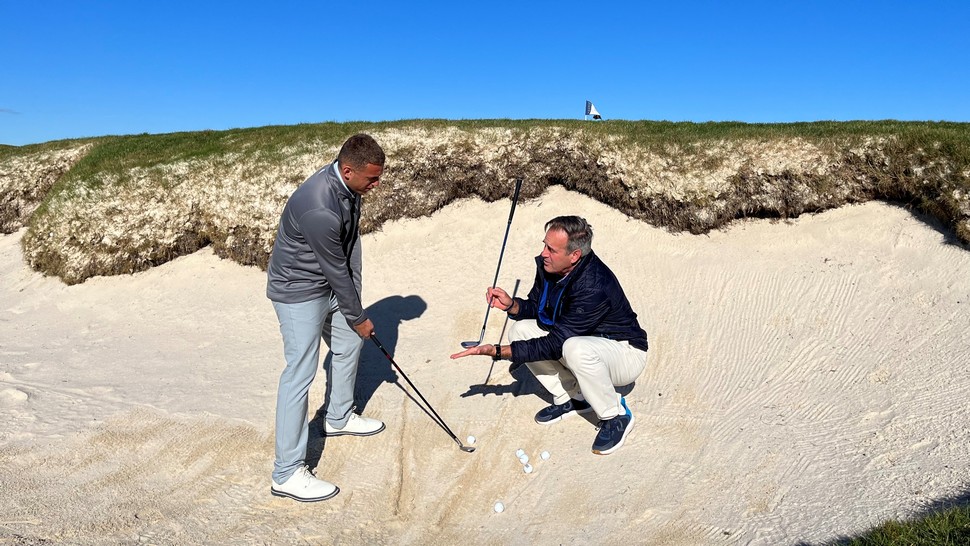
Do you implement different teaching / coaching methods for various handicap levels and those just starting the game versus long-time players?
CROWELL: Yes. I’ve never been a “method” teacher. And students have different styles of learning. The structure of my lessons remains consistent -- dialogue, Q&A, baseline observation, assessment, feedback, development of improvement strategy. But I generally tailor my approach based on the learning styles and the goals of each student. In all cases it’s a team approach to achieve improvement and greater enjoyment of the sport.
SMITH: Easy response here -- yes. Although more time consuming and challenging to implement, we must recall that each and every human is a case study of one.
From a physical, emotional and an innate athletic skill standpoint, and beyond throwing players into some 'expert's'-- consider the source, always -- basket of preferred models or methods - or worse yet, adhering to some random trendy/sexy "swing du jour" - is not only a cop out on the part of the instructor, but an injustice to the coaching profession. This would be considered a blatant example of fraudulent coaching in my book.
DICKSON: I feel it important to make sure every player has a solid set of fundamentals they can fall back on when their swing starts to fail them. Many players I start teaching typically need a touch-up on their setup fundamentals no matter how long they have played.
In what way do you incorporate feedback in your teaching / coaching efforts? Can you cite one specific example in which such feedback has helped you in your overall outreach efforts with students?
DICKSON: I am always looking for feedback from my students whether it is positive or negative. I will video my lessons to watch how I am communicating, listening, and demonstrating during the lesson. Watching yourself can be very humbling and shocking at times.
CROWELL: A key step in my process, before any instruction has taken place, is to ask the student to loosen up and just hit a few shots with a 7 or 8-iron. After the ball lands, I’ll ask: “on a scale of 1-10, what would you give that shot?” Based on the student’s handicap, scores, and our initial dialogue, I usually have an idea of what the “scoring” should be.
But I am frequently surprised by student answers. If the student responds with: “I’d give that shot a score of 6”, I’ll quickly ask: “what kept it from being a 7 or an 8?”. This exercise quickly unveils what is important to the student It also sheds light on their levels of expectation -- it’s an effective routine to learn more about the person in front of you.
SMITH: Our job as teachers/coaches and guides is chiefly to empower the student to self-coach. Yes, that eventually puts us out of a job, but so be it.
With that, the appropriate amounts, types of, and timing of, feedback are crucial for in depth learning. Far too often the student can be put into feedback overload mode -- too much from the teacher -- too much, too often, and too irrelevant.
Less is frequently more. In a more Socratic manner -- who was a decent teacher, last I checked -- I seek to encourage the student to feel, using not only the mind/brain, but the sensory system -- discovering and self-problem-solving in the learning process.
As one of my guides and mentors, Dr. Mark Guadagnoli, once shared with me something we can all take to heart. "Learning isn't about getting the answer right, but rather about figuring out how to solve the problem."
***
The Participants
Michael Dickson, PGA
Master Instructor
MCG Golf Academy at Little Bennett
Clarksburg, Maryland
Background
Has been teaching full-time since 2010 and had the opportunity to learn from some of the best instructors in the business including Lynn Blake, Mike Adams, David Edel, Mark Sweeny, and Dr. David Wright to name a few. In March 2022, he completed his PGA Masters Professional Project.
He is now focused on developing his revolutionary golf training aid that he believes could change how a player learns to play the game forever. www.mikedicksongolf.com.
The Dickson Story
Acquiring my PGA Master status was important to me because I wanted to represent the PGA at the highest regard while promoting and growing the game of golf.
I see the Master status as the pinnacle of a PGA Professional’s career because of the time and thoughtfulness required to put your knowledge on paper, present it to your peers, and test your knowledge live in person.
I am honored to be PGA Master Professional that represents this great game we all love.
Brian A. Crowell, PGA
General Manager
Trump Golf Links at Ferry Point
Bronx, New York
Background
A PGA of America Member since 1991, Crowell currently serves as president of the Metropolitan Golf Writers Association. A past president of the Metropolitan PGA Section, Crowell has been honored as the Metropolitan Section PGA Professional of the Year, as well as winning the PGA Professional Development Award -- formerly the Horton Smith Award.
As a broadcaster, has covered numerous Masters and PGA Championships for CBS, covered both men’s and women’s U.S. Opens, the Ryder Cup, President’s Cup and U.S. Amateur, and also hosted his own show, “Lesson Tee Live” on Golf Channel. He is also an author and currently the co-host for “On Course,” a weekly show on SiriusXM PGA TOUR Radio.
The Crowell Story
I was introduced to golf by my father and grandfather, and I still remember the first time I experienced that incredible feeling of pure contact. The ball left that Northwestern 7-iron and sailed deep into the fields across from my grandparents' house. I knew at a young age that golf was going to be a big part of my life. I became a member of the PGA in 1994, and was fortunate to have great mentors and motivators throughout my career.
I thoroughly enjoy the traditional role of PGA Professional, but golf opened many additional doors for me. I wrote several books on the golf swing, and upon the advice of a friend, I started my own golf show at a local radio station.
Throughout my journey I’ve realized the importance of providing quality instruction. Teaching is more than just an opportunity to help lower scores -- it’s an opportunity to entertain and connect with an audience. Many components of the traditional club pro job seem to be fading -- yet teaching and coaching remain pivotal in our profession.
Now, more than ever, PGA Professionals should embrace the opportunities that great instruction can provide -- doors open for great teachers. Which leads me to self-improvement and staying current. To rise above the rest, you should continue to seek knowledge and try to become better.
Christopher C. Smith, PGA
Director of Instruction
Eugene Country Club
Eugene, Oregon
Puerto Los Cabos Golf Club
Baja Sur, Mexico
Background
Been a player and student of the game for nearly 50 years, and instructed professionally since 1988 in a wide variety of environments, both domestically and abroad.
He is the Guinness World Record Holder in Speedgolf -- a round of 65 played in just 44 minutes with only six clubs at the Chicago Speedgolf Open in 2005. Also, an adjunct faculty member with the PGA of America, and has been featured in articles in Golf Digest, Golf Magazine, Wall Street Journal and on Golf Channel.
Authored "I’ve Got 99 Swing Thoughts but ‘Hit the Ball’ Ain’t One" (Crown, 2007), and created the neuroscience-based "Better Golf" audio CD.
His list of students includes tour players, professional athletes, elite juniors – and recreational hackers. His coaching blends tools, tech and vast experience, geared to create a learning experience that is enjoyable, insightful and performance-based.
https://www.christophersmithgolf.com.
The Smith Story
Attaining Master Professional status with the PGA of America is the culmination of close to five decades as a player and student of the game - and 30+ years as a teacher, coach and guide to those looking to improve.
It’s truly an honor to be part of a small group of highly focused, dedicated and committed professionals who have followed this pathway along with me.
And, I'm not done yet though.
